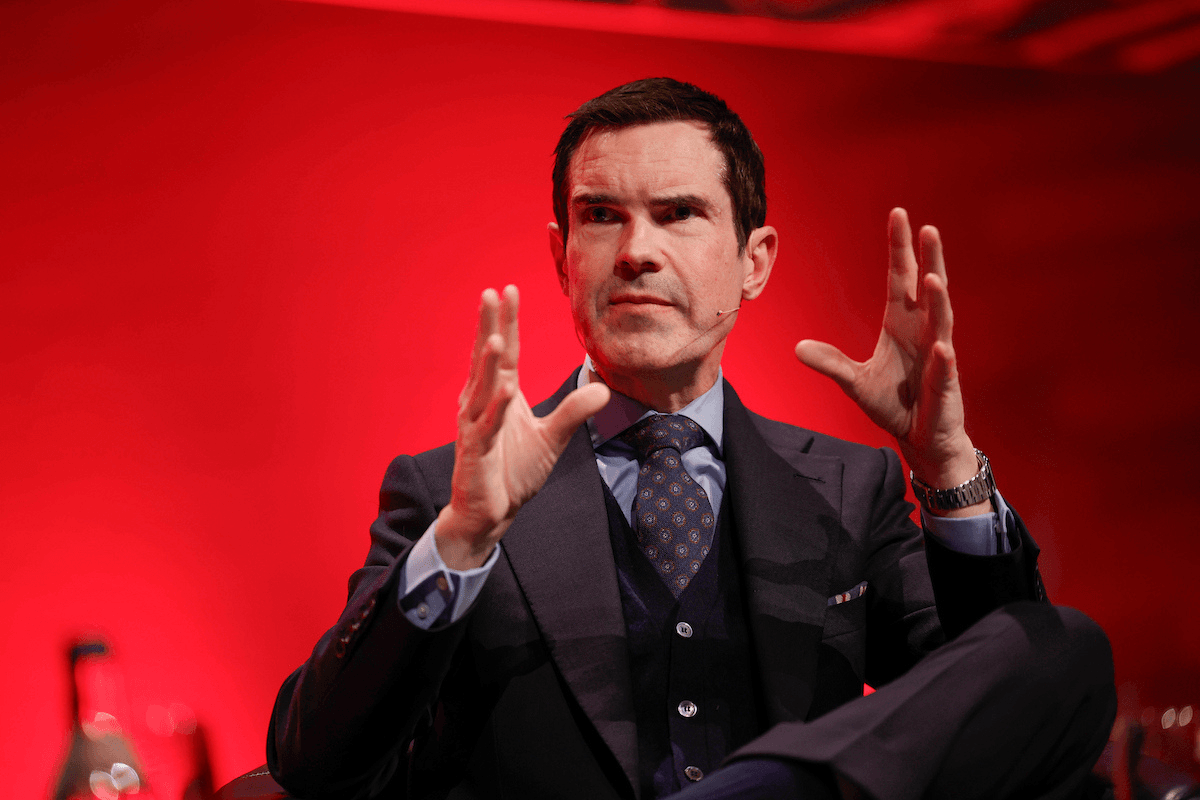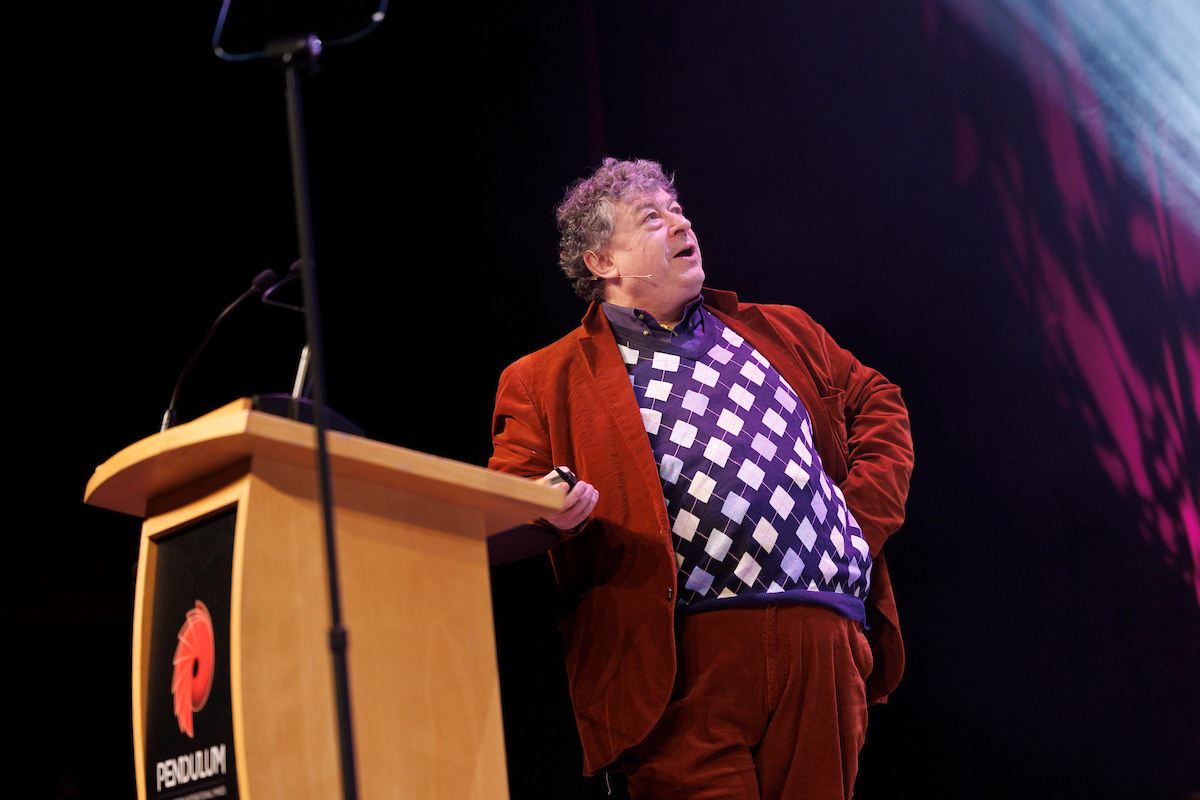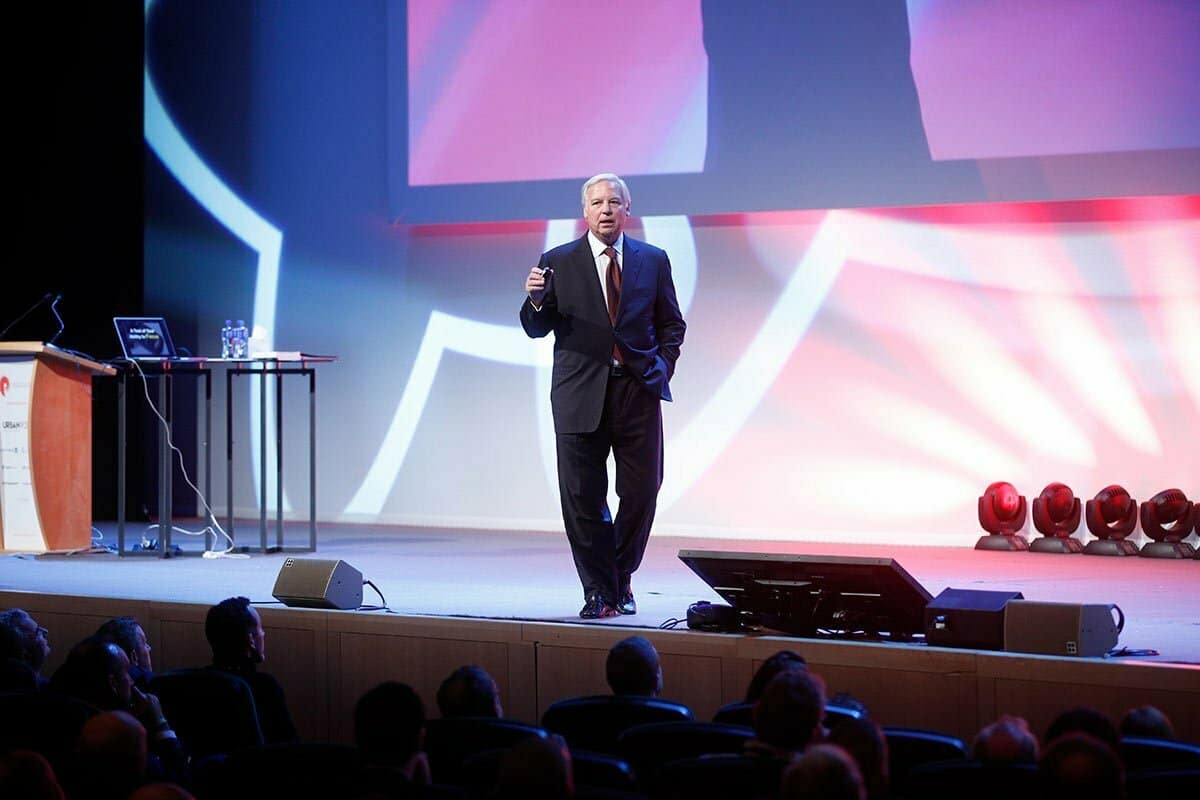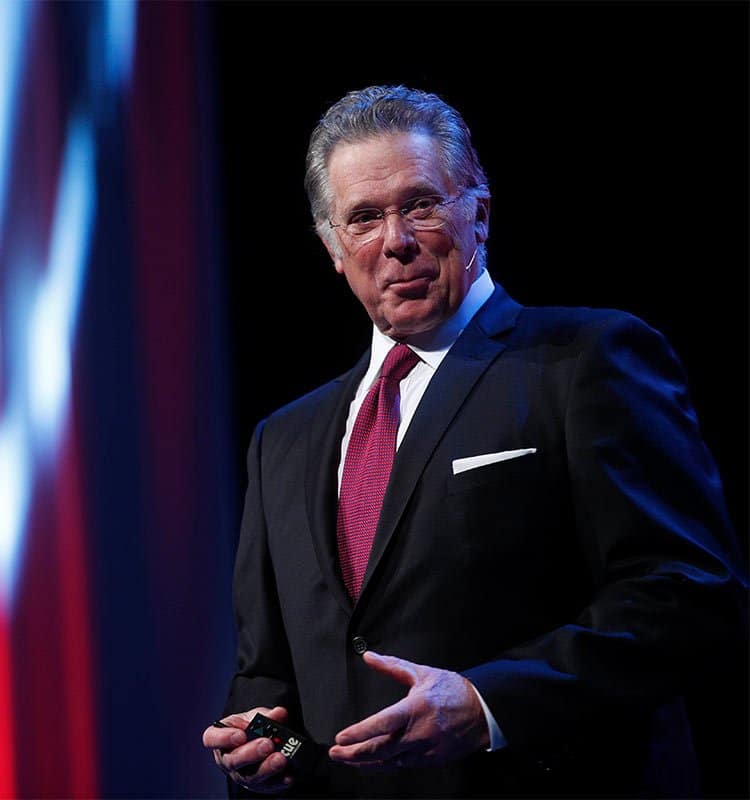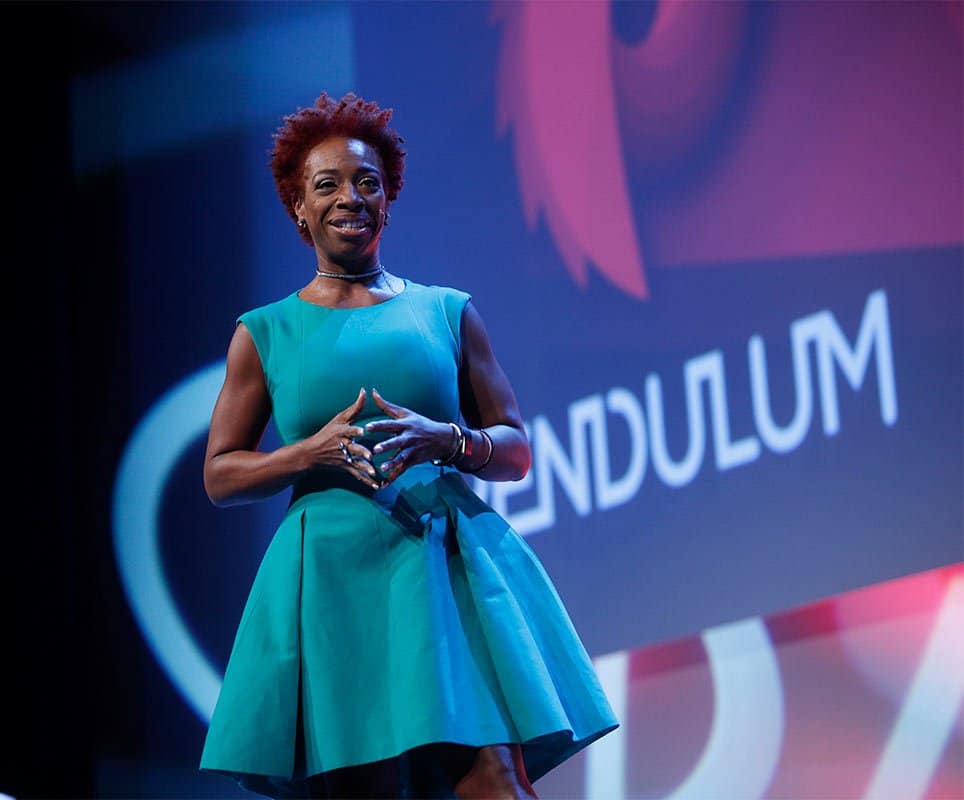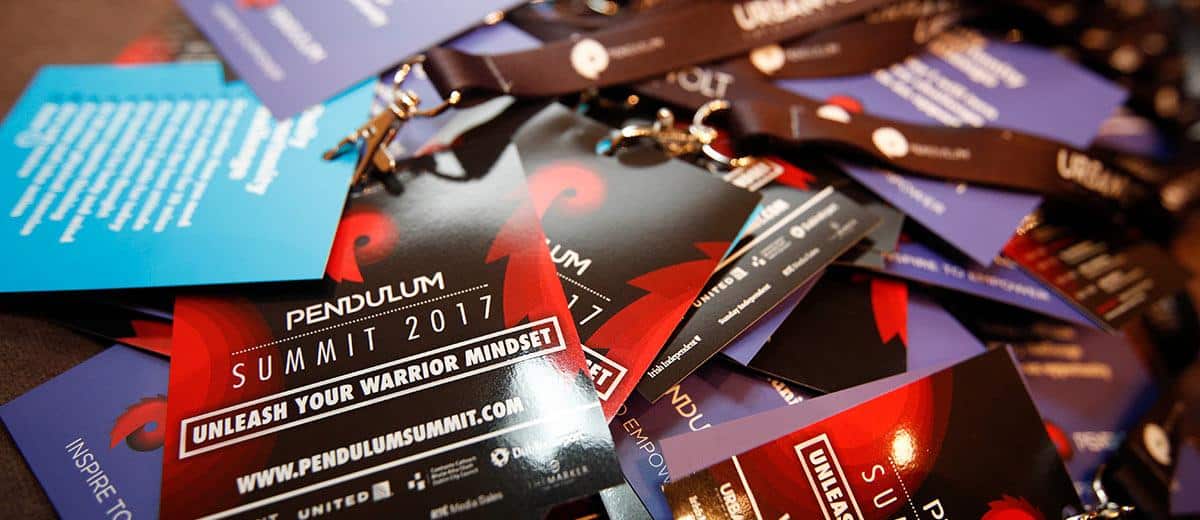This week we are recapping on one of the most successful entrepreneurs of his time, Lord Alan Sugar. Lord Sugar took to the stage on Day 1 of Pendulum 2020. He sat for an interview with Richard Curran to discuss all aspects of his time on The Apprentice, his various businesses and his insights into success.
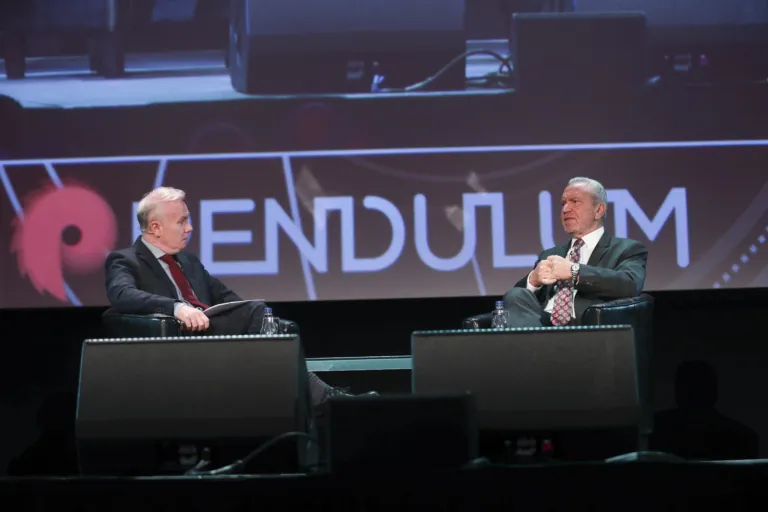 With friendly discussion and introductions to start, Richard Curran got down to it and
With friendly discussion and introductions to start, Richard Curran got down to it and
quizzed Sugar on The Apprentice, namely his bluntness on the show.
‘Directness is a term that I would prefer to use and I’ve always been very very direct. What’s on my tongue is on my tongue and I’ll tell it as it is. I think people appreciate that. For a while, they find it a strange initiative, but then people like to know where they stand. It’s as simple as that’.
‘Most people that deal with me know that you get a straight answer. That’s it, end of story. That’s the way I am and that’s why I think I’ve been as successful as I have been because I don’t flower my words. I tell it as it is and it’s very very very important to do that.’
He warned about the ‘blame culture’ that has become apparent in the last 10 years or so, ‘people looking for clues as to find reasons why they can do unfair dismissal and all this type of stuff and it’s quite sickening. Really I keep myself away from it because I’ll get into more trouble if I get involved’.
After a brief discussion about his time at Spurs, and the lessons he learnt from his experience there they got back to business. When questioned about his business vision, Richard asked him about ‘an industry that he would buy shares in tomorrow’.
‘That’s a good question. I was thinking about that the other day, batteries maybe because of the car industry. Everything is changing now to electric cars, if there was some research or some major breakthrough in battery technology. That would be an investment if it wasn’t smoke and mirrors. So I think technology is what I’ve been, that’s where I’ve been for 50 years. I can’t think of really anything else’.
And Richard asked about his biggest business regret?
He acknowledged that he was probably too profit oriented, ‘I didn’t invest in people who were actually going to bring me anything for the next week, two weeks, a month or six months I never have that longer term in view’.
If he was to go back to his 18-year old self with wisdom and knowledge he has today, what would he do differently?
‘What would I do? II would be in technology as I said and I would adapt. See what the market requires and that probably has something to do with mobile phones or whatever. You have to look at times of change and the retail market is completely changed, the method of selling goods has changed, the power of social media, the power of people or even Amazon.
I wouldn’t need to spend millions of pounds on advertising like I did in the past on TV and national press. There are other ways now of advertising and promoting the products. So for me personally, I’d still be successful. There is absolutely no excuse for any young person to turn around and say well it’s not like it was in your day because trust me he didn’t want to be in my day because it was tough in 1968, 1970.’
What personal characteristics do you value most in an employee or respect most in a business?
‘When employees are concerned, I’ve always found that you need two or three months to really observe that employee to see whether they, he/ she is a good one and here’s a very simple question: Do they get it why we are doing what we are doing?
In other words whatever I’m asking them to do, do they get it? Do they get what we’re about, do they get what they signed on to do and do they understand what they’re supposed to do. It’s me looking and observing them and say this girl, she gets it. This bloke, he gets it and I think you know, if they don’t then it’s nice advice to politely tell them that.’
Best advice he ever received?
He referenced an uncle of his, who was quite successful when compared to the rest of his family- he had a shop in London Victoria. He recalled ‘you know, if you’re in business, what you’re going to do is you’re going to count the numbers every day. You’ve got to do a quick P&L in your mind, is it going okay? You have got to recognise whether it’s going okay.
You have to keep making sure to keep a control on what is going on. When you’ve got good days, don’t ease up. Go for it because there were weeks when you know by Wednesday they could make 60 pounds and you can panic or give up. Where are the next 60 pounds at all, then other weeks, they would make a hundred fifty pounds. So what I was doing was a mini P&L every day or every week- how much stock I had, or self discipline to get out and work. This carried on throughout the whole of my business career and which kind of lead me to where I made one of my biggest errors and that was when I talked to you about the mistake I made by not investing in a bunch of high-tech engineers back in the ages because to me they would have been a part of the P&L which wasn’t actually giving me any return that month in that way.’
When younger generations ask questions like ‘What business should I go into?’ his advice reiterated the life lessons he has spoken about.
You should go into a business you understand. First of all, you need to have some experience- a job that you’ve done in the past working for someone else and have accumulated experience. And of course if you enjoy it then you know, I always say to then use my ethos of the daily or the weekly P&L which we just did and if something is going wrong, catch it, be able to recognise it, be realistic, and cut your losses. You know, that is particularly difficult to do with people who are passionate about something that they have invented or something that they think is the best thing since sliced bread when it’s not and you’ve got to realise that it is just not going to work out and move on.
How do you build trust in your organisation?
‘There is no guidebook to trust in organisations. I’m straightforward- I treat my people as I told you earlier and I’ve got people that work for me for 45 years, people who have worked for me for 25 years, 20 years. You know why they’re still there? Because there’s a mutual trust between myself and them and the trust comes from treating people correctly properly and fairly’.
After a quick word about today’s politics- Richard concluded ‘And the rest as they say is history Lord sugar. Thank you very much for joining us today.’
Don’t forget to sign-up to our newsletter to make sure you don’t miss out on any week of this series!

